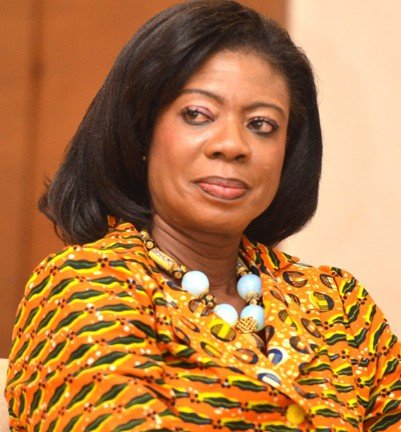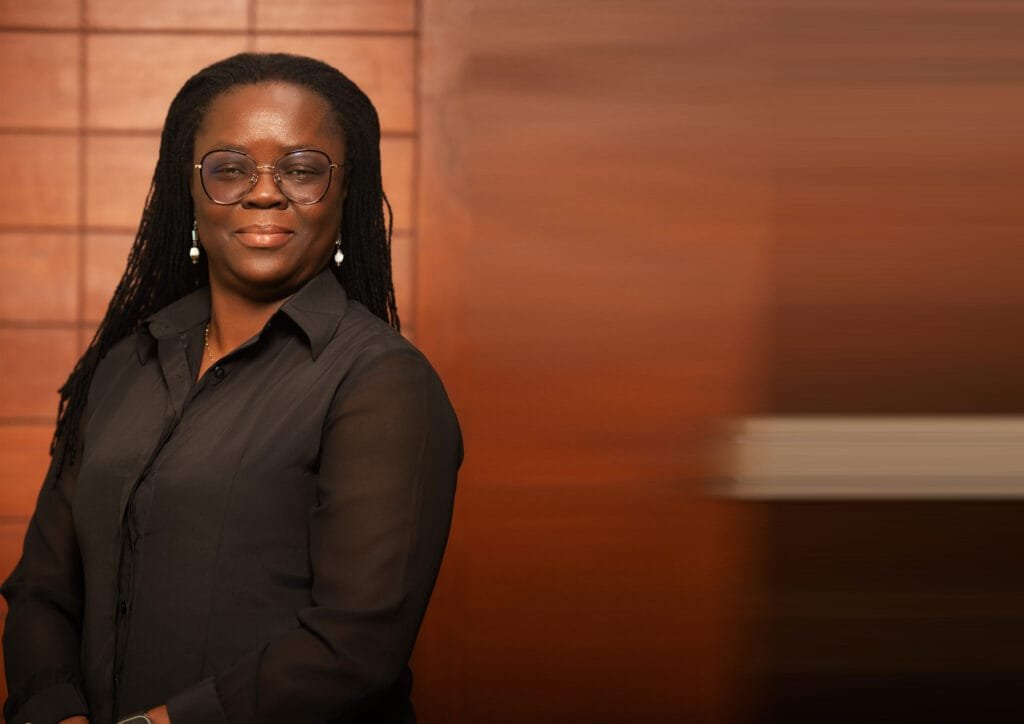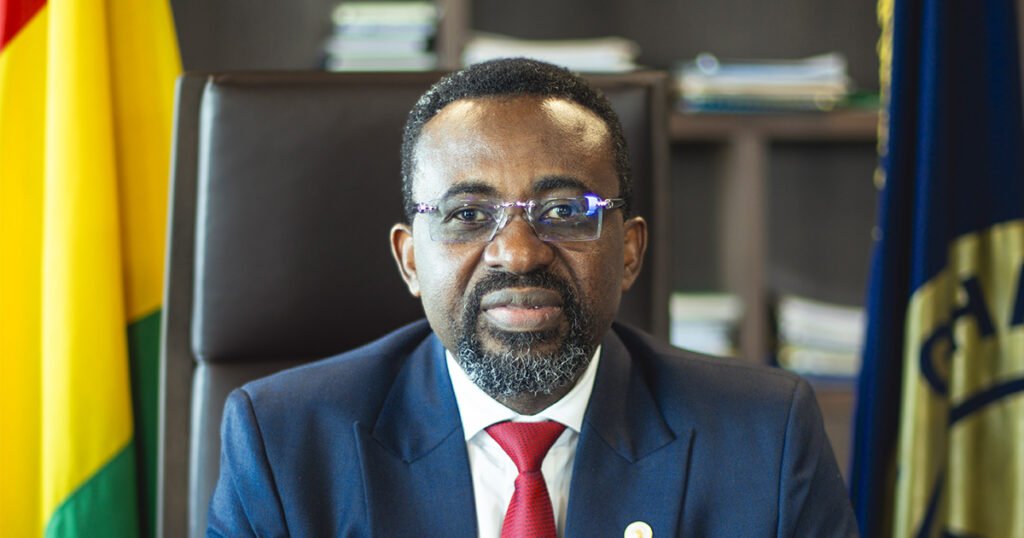The Vaultz celebrating women in grand style in the just ended International Women’s Day caught up with one of Ghana’s shrewd and influential industrialists who has wrestled through the male-dominated industry (cable industry)– noted as the preserve of men and has become a success. This strong-willed, focused and passionate industrialist has successfully nurtured her businesses to be a force to reckon with among global brands. Mrs. Kate Quartey-Papafio (KQP) has proven beyond all odds that the global environment presents equal opportunities for all genders and inspires women of all ages to capitalize on their strengths to make a difference in society.
TVM: The country’s total debt is estimated at 74% of GDP, which is obviously unsustainable. What pragmatic steps should the government take to reduce the debt stock?
KQP: The government should ensure not to spend more than the targeted revenue generated and also try to spend more on capital projects to spur investments in the economy which will increase revenues.
TVM: There have been numerous conferences/events to discuss setting the agenda for achieving a Ghanaian owned economy. Beyond the rhetoric, how can we realistically achieve a Ghanaian owned economy?
KQP: I believe the Ghanaian industrialist has to be encouraged to enable him or her know that it’s worth investing in your home country and also owning it as a Ghanaian. Government should also provide the enabling environment that supports existing businesses in the country.
TVM: The country’s total debt is estimated at 74% of GDP, which is obviously unsustainable. What pragmatic steps should the government take to reduce the debt stock?
KQP: The government should ensure not to spend more than the targeted revenue generated and also try to spend more on capital projects to spur investments in the economy which will increase revenues.
TVM: There have been numerous conferences/events to discuss setting the agenda for achieving a Ghanaian owned economy. Beyond the rhetoric, how can we realistically achieve a Ghanaian owned economy?
KQP: I believe the Ghanaian industrialist has to be encouraged to enable him or her know that it’s worth investing in your home country and also owning it as a Ghanaian. Government should also provide the enabling environment that supports existing businesses in the country.
TVM: The Ghanaian economy has been described by many as being overly liberalized, and this obviously affects the local business economy/environment, what suggestions do you proffer to reverse this debilitating trend?
KQP: There should be a boost in the manufacturing sector of the economy to serve as a drive to aid most transformative activities.
TVM: What policies would you recommend to government to get the private sector, specifically industry, humming again, in the midst of suffocating taxes, high import rates and high power tariffs?
KQP: Attractive financing to support the growth and alternative source of power supply to support the operations of the private sector particularly those into manufacturing. I’ll also suggest that government should not tax start-ups in the country until they get to a certain level that they start making profit. When government does that it will help encourage the establishment of more businesses.
TVM: There has been perennial rhetoric of diversifying the Ghanaian economy, culminating in a National Export Strategy. What strategies can government adopt to grow the Non-traditional export sector?
KQP: Specific actions for prioritized export sectors. Reviewing issues that inhibit sectorial growth and leveraging cross-cutting issues in sector-specific detail to achieve an industry’s export potential.
TVM: Is the new government’s One District, One factory policy feasible and viable? What kind of support structures would be required, if the project is to be successful?
KQP: I think it is a very feasible policy because every single district in the country has its own capacity to help expanding the nation’s economy to help stimulate more economic activities to help promote growth and development. The support structures I will profess is putting in place sustainable measures to guide the successful execution of the projects.
TVM: The government has promised to reduce ‘nuisance’ taxes inhibiting businesses. Others have complained about the policy possibly reducing government’s aggregate revenue. What’s your opinion on this?
KQP: You know lots of taxes stifle the growth of many businesses, so as they are reduced business owners would be very happy for some reliefs that they would be getting.
TVM: You are a highly respected industrialist and business leader in Ghana, how would you describe the country’s overall business and manufacturing sector?
 KQP: It’s a very promising, attractive and prospective sector for investment. Because of the stable political climate, investment made in the area of businesses are sustained for a long term and it also encourages investors to come into the country to partner local companies to help expand the economy of the country.
KQP: It’s a very promising, attractive and prospective sector for investment. Because of the stable political climate, investment made in the area of businesses are sustained for a long term and it also encourages investors to come into the country to partner local companies to help expand the economy of the country.
TVM: What are some of the recurring challenges peculiar to your industry? How do you think they can be resolved?
KQP: High cost of utility. Because we are a result oriented company so we take every hurdle after the other with targeted lasting solution. Government should find an alternate source of power to supply to industries to help them in their production processes. This alternate source of power should not be very expensive for industries to pay.
TVM: You have proposed the removal of intra-trade barrier in the sub- region. Will that be the panacea to creating the “Borderless Africa” you’ve been advocating for?
KQP: YES! Because these trade barriers make doing business with neighboring African countries very difficult. When these barriers are removed it will facilitate trade relations between African countries and inter- trade among them will expand their economies.
TVM: If you were the Minister for Trade & Industry or Minister for Business Development, what policy initiatives and interventions would you undertake to improve the country’s manufacturing sector?
KQP: I will foster the growth of entrepreneurial ecosystem. My initiatives will be as follows
- I will make the formation of entrepreneurial activity a government priority
- Ensure that government policy is broadly focused
- Develop policy that addresses the needs of both the business and its management team
TVM: Despite the inherent benefits of local participation & local content policies as well as patronage of Made in Ghana goods on the local economy, there appears to be hesitation and/or resistance on the side of government and consumers to do so. What do you think influences this unhealthy behavior amongst policy makers and Ghanaian consumers, and how can the trend be reversed?
KQP: I believe the engineering catch phrase of buy build Ghana has to be well looked at and also employ all the elements of branding that has to be properly captured to help in the promotion of the Made In Ghana goods. In reversing this assumption I believe strongly that the costing of locally manufactured products has to be relooked at in helping to achieve local recognition.
TVM: In Ghana, industrial users of electricity pay more than domestic/residential users. It’s been advocated that this trend should be reversed in order to grow the manufacturing sector. What’s your perspective on this issue?
KQP: The industry has a collective voice and I believe government should listen to the voices of various captains of industries and respond to them. This will enable industries increase their production capacities and also employ more of the unemployed Ghanaian youth and will help stimulate the growth in the country.
TVM: During the country’s ratification of the interim European Partnership Agreement (iEPA), many industry players were strongly against the government’s decision. Do you support the EPA? What are the pros and cons, and how can local businesses benefit from it?
KQP: I don’t support it!
TVM: Why don’t you support it?
KQP: Because I think it will create dumping effect and also will monopolize a section of the Ghanaian market leading to the collapse of some businesses in the long run.
TVM: How can Ghanaian founding entrepreneurs build businesses that thrive on many years after them?
KQP: They need to have sustainability strategies and put in place very achievable and detailed transitional procedures that will help their businesses grow for years after its successful establishment.
TVM: You are on record to have stated that, “taking cognizance of Africa’s resources, we have not started at all in industrialization”. Could you please shed more light on this statement? Industrialization
KQP: Reroy as an indigenous Ghanaian company would like to do projects to spur investments in the economy
TVM: How would you describe yourself?
KQP: A courageous Ghanaian Industrialist, firm, proactive and resourceful leader who sees risks and challenges as opportunities for growth and development. To me, gender cannot be an excuse for non-performance.
TVM: Did you ever dream of becoming such a successful entrepreneur when you were young?
KQP: YES, because I was very committed to what I was doing and saw the green light from afar.
TVM: You are known to be established in an industry that’s considered as a preserve for men and foreigners. Why did you venture into this industry in the first place?
KQP: I wanted to help solve the lasting power situation facing Ghana and the continent at large by providing targeted solutions to a broad range of power needs, while ensuring exceptional value to our clients.
TVM: How has it been rubbing shoulders with the men and foreigners operating in the industry being the only female player in the West African market?
KQP: It has made me responsive to innovation and changing trends in the industry I operate. The fact that I find myself in an area considered the preserve of men has made me much stronger and very persistent.
TVM: Did you or do you have any mentor(s) that have influenced your thinking in life, business, etc?
KQP: Mentoring really is something that can benefit everyone. As well as helping the mentee develop and advance through their career, the mentor can gain extra skills and understanding from the partnership. God has been my number one mentor since birth as well as other high profiled family members I had.
TVM: You are such an accomplished entrepreneur, building an incredibly reputable group in the process. What is the motivating factor(s) behind your success in business?
KQP: The fundamental key to success in business is self-belief and women are naturally known for underestimating their abilities. To succeed in business, you must believe in yourself. This is very important because no one will believe in you
and your product or services if you don’t first believe in yourself. Success in business is highly dependent on the mindset on which that business was started. To become a successful woman entrepreneur, you must have the right mindset.
TVM: You have received numerous awards for the stellar performance of your companies, how will you describe your leadership style?
KQP: I am a Doer, Proactive, Resourceful and a result oriented person.
TVM: Women, recently, were celebrated for their tremendous contributions to their societies under the theme “Women in the Changing World of Work”. Some argue that some women are more productive in leadership positions than their male counterparts and that’s why the saying goes thus: “…, but if you educate a woman you educate a nation”. When do you suggest will be the time for women to govern this nation?
 KQP: Not too distant future because you can see in our political landscape the increasing number of women who are representing thousands of men in parliament. It is now also clear for everyone to see how women are actively taking part in development. This shows women are gearing up for the top job in the Country.
KQP: Not too distant future because you can see in our political landscape the increasing number of women who are representing thousands of men in parliament. It is now also clear for everyone to see how women are actively taking part in development. This shows women are gearing up for the top job in the Country.
TVM: What is your business management philosophy?
KQP: We at Reroy Cables limited assure all our Customers of Quality Electrical Cables and Conductors manufactured to acceptable international Standards. We use Quality Raw Materials as well as Reliable Technologies to manufacture safe and sound products at competitive cost. We continually seek to improve our Quality Management System to guarantee the delivery of quality products and assure the Safety of our Customers.
TVM: What enduring principle(s) guide you in all facets of your life?
KQP: Attention to details, perseverance, determination and Honesty
TVM: Due to your wealth of experience in life and business, do you intend to document it in a book (autobiography / biography) to benefit the younger generations?
KQP: Yes and I’m currently working on that and would be making that public in not too distant future. I believe I’ve worked hard for me to share my story to encourage up and coming younger ones in the country and the world at large.
TVM: What advice would you give to the following?
- Current Government-
KQP: Government should give the private sector the enabling to create more employment opportunities to reduce the burden on government.
- Businesses-
KQP: Businesses have to be responsive to innovation because it will underpin their growth and also adopt to changes in the business world
- Aspiring entrepreneur & youth-
KQP: They have to have a clear vision on what they want to do, how to do it and the right approaches to subscribe to
- Women-
KQP: They should be bold and take up leadership roles.









